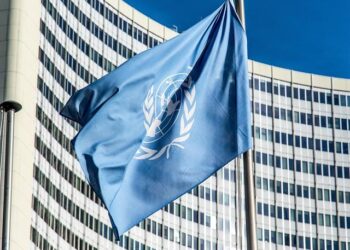A new report has confirmed that climate change has intensified the recent deadly wildfires in Turkey, Greece, and Cyprus, making them more severe and difficult to control. As these Mediterranean countries grapple with the aftermath of unprecedented blazes that have claimed lives and devastated communities, experts warn that rising temperatures and prolonged drought conditions are fueling the increasing frequency and ferocity of such disasters. This development underscores the urgent need for coordinated climate action to mitigate the escalating risks posed by global warming in the region.
Climate Change Amplifies Intensity of Wildfires in Turkey Greece and Cyprus
Recent climate studies have confirmed that rising global temperatures and prolonged drought periods have significantly worsened the severity of wildfires across Turkey, Greece, and Cyprus. These extreme weather conditions have created a perfect storm for blazes to ignite and spread rapidly, overwhelming local firefighting resources. In particular, record-breaking heatwaves and declining seasonal rainfall have stripped landscapes of moisture, turning forests and grasslands into tinderboxes ready to erupt at the slightest spark. Authorities report that fire seasons are not only longer but also more unpredictable, complicating efforts to safeguard vulnerable communities and critical ecosystems.
The following factors have been identified as key contributors to the increased intensity and frequency of wildfires:
- Extended droughts reducing soil and vegetation moisture
- High temperatures leading to rapid drying of natural fuels
- Shifting wind patterns accelerating fire spread
- Human activity intersecting with fragile ecosystems during peak fire seasons
| Country | Average Annual Wildfires | Peak Fire Season (Months) | Reported Damage (2023) |
|---|---|---|---|
| Turkey | 1,200 | July – September | Approximately 230,000 hectares |
| Greece | 900 | June – August | About 180,000 hectares |
| Cyprus | 150 | July – August | Over 15,000 hectares |
Environmental Impact and Human Cost of the Recent Blaze Wave
Recent wildfires across Turkey, Greece, and Cyprus have left a devastating mark, both ecologically and socially. Vast tracts of Mediterranean forests, home to diverse flora and fauna, have been reduced to ash, disrupting fragile ecosystems and accelerating biodiversity loss. The smoke and particulate matter have severely degraded air quality, leading to increased respiratory issues among local populations. Additionally, soil erosion and water contamination in burnt regions threaten long-term agricultural productivity and local water supplies, posing significant risks to food security and livelihoods.
The human toll has been equally harrowing. Thousands have been displaced, many losing their homes and access to basic necessities. Emergency services have been stretched to their limits, grappling with the challenge of containing multiple fires simultaneously amid soaring temperatures. The following table summarizes key impacts observed across the affected areas:
| Impact | Turkey | Greece | Cyprus |
|---|---|---|---|
| Area Burned (hectares) | 85,000 | 72,000 | 15,000 |
| Displaced Residents | 12,500+ | 9,800+ | 3,200+ |
| Estimated Economic Loss (million ‚ā¨) | 450 | 390 | 120 |
Urgent Steps Needed to Mitigate Future Wildfire Risks in the Eastern Mediterranean
Governments across the Eastern Mediterranean must adopt comprehensive strategies to address the escalating wildfire menace exacerbated by climate change. Immediate investment in modern firefighting infrastructure, including aerial surveillance and rapid response teams, is crucial to contain fires before they spread uncontrollably. Additionally, enhancing cross-border collaboration between Turkey, Greece, and Cyprus can foster shared intelligence and resource pooling, allowing for more coordinated firefighting efforts in regions with similar ecological vulnerabilities.
Equally important is the implementation of rigorous land management policies focused on reducing combustible vegetation through controlled burns and reforestation with fire-resistant species. Public awareness campaigns aiming to educate communities about fire prevention and emergency readiness must be intensified. Below is a concise overview of priority actions recommended for regional authorities:
- Upgrade firefighting technology and increase funding for emergency services
- Enhance regional cooperation for real-time data sharing and joint exercises
- Implement sustainable land management practices to reduce fuel loads
- Promote community engagement and education on wildfire risks
| Action | Expected Impact | Timeline |
|---|---|---|
| Advanced firefighting equipment | Faster containment | 1-2 years |
| Cross-border task forces | Improved coordination | Immediate |
| Controlled vegetation burns | Reduced fuel load | Ongoing |
| Public education programs | Lowered human-caused ignition | 6 months |
Insights and Conclusions
As wildfires continue to threaten communities across the Mediterranean, the stark findings linking climate change to their increased intensity underscore the urgent need for coordinated action. Experts warn that without significant measures to reduce greenhouse gas emissions and enhance disaster preparedness, the region may face even more devastating fire seasons in the years ahead. Policymakers and citizens alike are called to confront the growing challenges posed by a warming climate to safeguard lives, ecosystems, and economies.
















